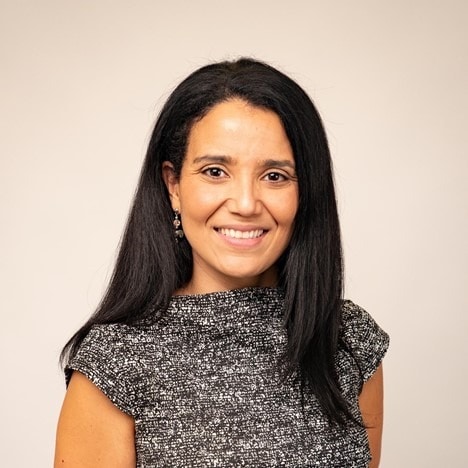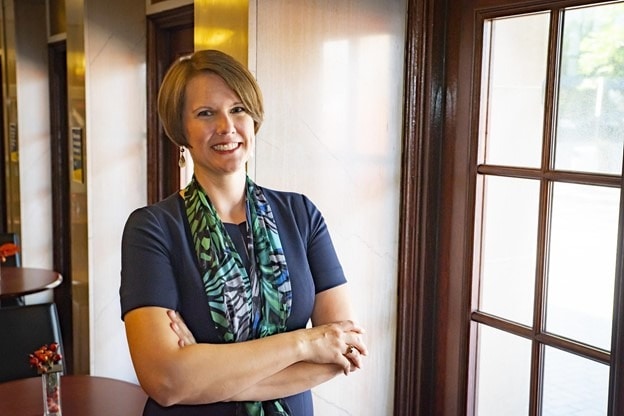/ News Posts / Music Teaching and Learning during COVID-19 and Beyond
Music Teaching and Learning during COVID-19 and Beyond
Seeking Professional Satisfaction and Continuing to Teach
By NAfME Member Mara E. Culp and Rachel Roberts
The events of 2020 altered education around the world. Amidst turmoil, many re-examined values, priorities, and possibilities—including music educators. Although most music teachers may never have envisioned teaching in this educational landscape, we believe it is still possible to seek professional satisfaction, which can help ensure students have positive, meaningful experiences as well. Suggestions—guided by personal experiences, interactions with colleagues and students, and literature—are presented as a continuous cycle of 1) identifying personal values and priorities, 2) setting expectations and making plans, and 3) taking action.
Potential Influences on Music Teacher Satisfaction and Continuation
Prior to COVID-19, researchers and scholars indicated that music teachers’ satisfaction and continuation could be related to students, schedules, materials, administration, parents, curriculum, autonomy, salary/income[1], paperwork and duties, work-life balance, and career advancement to varying degrees (Baker, 2011; Cutietta and Thompson, 2000; Gardner, 2010; Hancock, 2008; Miksza and Hime, 2015, 2016; Matthews and Koner, 2017; Siebert, 2008).
Identifying Personal Values and Priorities
Because factors lending to teacher satisfaction and continuation can differ among teachers, we suggest teachers develop a list of priorities. Teachers can begin by reflecting on their personal philosophy and values, determining what it will take to feel successful and fulfilled, and examining ways their teaching responsibilities align with or provide opportunities to enact these values. We suggest making a list in light of current circumstances, and reevaluating as changes occur.
Setting Expectations and Making Plans
After identifying priorities, we recommend teachers set realistic expectations and make plans to act. Determining related benchmarks or norms from trustworthy sources may help inform expectations. Some items may require support from school community members and teachers may not feel able to advocate or negotiate for reasons such as lack of confidence or experience; or fear of rejection, negative consequences, or retaliation. Thus, beginning with aspects within the teacher’s control, informed by trusted resources, may help teachers feel more immediate success and build confidence.
After determining expectations, teachers can select action items, focusing on priorities and realistic possibilities. Finally, teachers can develop strategies and practice how they will go about enacting and advocating change, particularly when others are involved. Teachers can role-play the conversation, acting both as themselves and the other party, to prepare for these conversations. This can help teachers better understand and prepare responses for possible objections.
Taking Action
Here, we provide suggestions for consideration presented in alphabetical order and informed by previously-mentioned sources as well as others noted throughout and noted below. Suggestions are meant to be broad—potentially applicable to a wide variety of music teaching scenarios—and examples are not exhaustive. Therefore, we encourage readers to consider individual circumstances as they take action. Discussing personally-beneficial practices may also help teachers continue to refine their ideas[2], while potentially serving as a resource for others.
Administrative Support
To garner support, teachers could:
- review NAfME position statements (which may include COVID-19-specific addendums)
- invite administrators to learn about the music program (e.g., listen to student recordings)
- promote the program publicly
- share background of musical content and processes as part of performances
- seek and organize parental assistance in advocacy efforts (NAfME, d.a)
- review resources for advocating for music programs (see NAfME, d.g)
- articulate what matters for your music students and your own professional development
- determine a realistic amount of regular time that can be committed to advocacy efforts
- develop solid arguments and refine your persuasion skills (see Center for Creative Leadership, n.d.)
- discuss program goals and direction with colleagues and administrators, attempting to find common ground while advocating one’s vision supported by relevant guidance
Autonomy
Considering COVID-19 guidance, teachers may be able to make important, creative decisions related to:
- repertoire
- scope and sequence
- assessment strategies
- goals and outcomes
- other materials
Teachers without classrooms could:
- adapt a space (e.g., instrument storage becomes online teaching room[3])
- decorate “traveling” materials in personal ways (e.g., pictures of loved ones, pets)
Career Advancement and Professional Growth
Conceptualizing advancement in terms of satisfaction and fulfillment through professional growth, involvement, impact, and/or visibility, teachers could:
- increase knowledge by reading journals (e.g., Music Educators Journal), listening to podcasts, or engaging in (online) experiences, such as webinars, conferences, classes, online learning platforms (e.g., NAfME Academy), or study groups (e.g., Music Education and Special Needs Study Group)
- pursue additional degrees, credentials, and certifications (e.g., National Board Certification)
- connect with other or more experienced professionals (e.g., seek mentorship, collaborate)
- become involved with state, national, or international organizations; affiliated groups (e.g., Decolonising and Indigenising Music Education Special Interest Group); or online communities (e.g., Music Educators Creating Online Learning)
- mentor other teachers or host preservice teachers (Snell et al., 2019[4])
- share knowledge in school (districts), at conferences, or by publishing in professional journals
- assume leadership positions in/on a school, organization, or journal’s editorial board
Curriculum, Scheduling, and Course Offerings
Curricular decisions can positively affect students’ experience long-term, while helping teachers achieve professional satisfaction, such as:
- using technology—an important consideration beyond COVID-19 as well (Bauer, 2014, 2020)
- providing more depth using fewer musical selections (e.g., composer information, musical concepts, cultural context)
- offering non-performance-based opportunities (e.g., songwriting)
- capitalizing on opportunities to offer multiple small sections of a class/course (Culp and Clauhs, 2020)
- experimenting with and refining lessons taught multiple times
- researching and removing problematic literature (for ideas, see Gamza, 2020)
- thoughtfully incorporating repertoire/materials/perspectives from many cultures and genres, including historically underrepresented groups—for ideas, see NAfME webinars (e.g., Waller-Pace, Batislaong, and McCauley, 2020); Institute for Composer Diversity databases[5]; and podcasts (e.g., Classically Black Podcast, HERstory)
Mindset
Drawing on Dweck’s (2007) work on mindsets, we recognize an individual’s beliefs about themselves can impact their lives and exploring a growth mindset may be beneficial for teachers, who could:
- identify and let go of what is out of their control
- focus on what is in their control
- determine ways to set goals within their control that will allow personally-meaningful growth
- strive for incremental positive change over time
- reframe their own outlook on difficult situations
Students, Families, and Communities
To restore, maintain, and/or build relationships, music teachers could consider:
- eliciting ideas from students, families, and community members using online platforms/surveys
- collaborating with school personnel and colleagues
- inviting community members (e.g., children’s household members, local musicians, school personnel) to share musical experiences
- making positive phone/video calls or sending positive emails/messages home
- having students complete play-along videos, assignments (e.g., a family and friends musical tree), and tasks (e.g., musical scavenger hunts) with household members
- practicing gratitude for the positive relationships that are present or growing (e.g., sending thank you notes)
- creating and sharing class “newsletters” and updates and gathering “musical updates” from families
- asking students and families to submit information (e.g., journal entries) about favorite school musical memories/moments and the impacts on their lives
- offering additional ways of performing and sharing (e.g., playlist of student performances/compositions/work accessible online during a timeframe) (Culp and Clauhs, 2020; Culp and Salvador, 2017; Reese and Culp, 2019)
Supplies and Materials
Considering eligibility requirements, teachers could seek to acquire materials using avenues such as:
- DonorsChoose
- Fund for Teachers
- Grants for Teachers
- Guitar Center Music Foundation
- Music Will
- The Mr. Holland’s Opus Foundation
- National Education Association
For additional organizations, see Culp and Clauhs (2020, p. 48).
Work-Life Balance and Self-Care
To work toward achieving a personally-fulfilling work-life balance and self-care practices, teachers could:
- assess current self-care, identify options, and develop an action plan toward sustainable self-care (Kuebel, 2019)
- say “no” more to activities/requests that are not necessary, periphery, or otherwise unfulfilling/draining
- draw clear boundaries around home and work and stick to them
- review resources geared toward music teachers (e.g., Jones, 2020; Moffat, Varona, and Kuebel, 2020)
Concluding Thoughts
Teaching music can feel overwhelming and seeking professional satisfaction can help teachers find joy in challenging times. By identifying their particular needs and consulting trusted sources to help set reasonable expectations, we hope music teachers can find fulfillment and better assist their learners for years to come.
Notes
- Negotiating salary may not be possible for all music education professionals, particularly during times of economic hardship or in settings with salary schedules (see Gray et al., 2013; NCES, n.d.). Those who can negotiate may find the American Association of University Women (AAUW)’s (2020) guidance (i.e., knowing one’s value, understanding current comparatives, developing a strategy, and practicing) and materials (e.g., WorkSmart and StartSmart workshops) to teach salary negotiation skills to working women and college students beneficial.
- We thank our colleagues in music teaching who provided feedback on this post, which allowed us the opportunity to continue to develop our ideas about seeking professional satisfaction as well (in alphabetical order): Matthew Clauhs, PhD (Ithaca College, Assistant Professor of Music Education, Instrumental), Rachel Dobbs, MA (Rochester City School District, K–8 General Music Teacher), Ashley Moss Fox, MM (Rochester City School District, PreK Music and Movement Specialist) Jing Tian Ngiaw, BM (Buffalo United Charter School, K–8 General Music Teacher).
- An idea modeled by UPK–5 General Music Teacher Adam Foley, PhD in the Gates-Chili Central School District.
- Hosting a student teacher could provide music teachers with additional assistance, as well as help music teachers increase knowledge, reflect on personal practice, and stave off professional isolation—which may be particularly valuable for teachers who feel isolated, want to learn new skills, or need to develop new material. Working with preservice teachers during other coursework they complete could serve similar ends as well, while helping build relationships with university faculty with positive outcomes for all involved. See Snell et al. (2019) for a discussion.
- At the time this post was written, the databases were temporarily muted and anticipated to return in early 2021.
References and Resources
American Association of University Women. (2020, June 18). The Gender Pay Gap. Retrieved November 15, 2020, from https://www.aauw.org/issues/equity/pay-gap/
American Association of University Women. (2020, August 27). Work Smart and Start Smart: Salary negotiation. Retrieved November 15, 2020, from https://www.aauw.org/resources/programs/salary/
Baker, V. D. (2011). Profile of a Career Music Educator. Texas Music Education Research, 1-12. https://files.eric.ed.gov/fulltext/EJ1102259.pdf
Bauer, W. I. (2014). Music Learning Today: Digital Pedagogy for Creating, Performing, and Responding to Music. Oxford University Press.
Bauer, W. I. (2020). Music Learning Today: Digital Pedagogy for Creating, Performing, and Responding to Music (2nd ed.). Oxford University Press.
Berklee Institute for Arts Education and Special Needs. (n.d.). Music Education and Special Needs Study Group: Winter 2020. Retrieved November 15, 2020, from https://www.berklee.edu/berklee-institute-arts-education-and-special-needs/music-education-and-special-needs-study-group
Brown, K., and Harris, D. (Hosts). (n.d.). Classically Black Podcast [Podcast]. https://www.classicallyblackpodcast.com/about
Center for Creative Leadership (n.d.). Influencing: Lean How to Use the Skills of Persuasion. Retrieved December 04, 2020, from https://www.ccl.org/articles/white-papers/learn-persuasion-skills/
Culp, M. E., and Clauhs, M. (2020). Factors that Affect Participation in Secondary School Music: Reducing Barriers and Increasing Access. Music Educators Journal, 106(4), 43-49. https://doi.org/10.1177/0027432120918293
Culp, M. E., and Jones, S. K. (2020). Shame in Music Education: Starting the Conversation and Developing Resilience. Music Educators Journal, 106(4), 36-42. https://doi.org/10.1177/0027432120906198
Culp, M. E., and Salvador, K. (2017, December 21). Embracing Human Difference in Music Education: Suggestions for Honoring Diversity in Music Classrooms [“Music in a Minuet” Blog post]. https://nafme.org/embracing-human-difference-music-education/
Cutietta, R. A., and Thompson, L. K. (2000). Voices of Experience Speak on Music Teaching. Music Educators Journal, 87(3), 40-43, 51. https://www.doi.org/10.2307/3399662
Donors Choose. (n.d.). Support a Classroom. Build a Future. Retrieved November 15, 2020, from https://www.donorschoose.org/
Dweck, C. S. (2007). Mindset: The New Psychology of Success. Ballantine Books.
Fund for Teachers. (n.d.). Our mission. Retrieved November 15, 2020, from http://www.fundforteachers.org/
Gamza, K. (2020). 2020 List of pieces to be reconsidered or removed. Retrieved November 15, 2020, from https://docs.google.com/spreadsheets/d/1oDJ9lZD4mNkWORsBf_6pPkMQczxoTz2YZYI-EtKGRoY/edit?fbclid=IwAR2arMaQP-ITG3zCfNzN1xpJ3KovNvdzdKO2i4ZRF4Ze0LXT_3Mz621-pr8
Gray, L., Bitterman, A., and Goldring, R. (2013). Characteristics of Public School Districts in the United States: Results from the 2011–12 Schools and Staffing Survey (NCES 2013–311). U.S. Department of Education. Washington, DC: National Center for Education Statistics. https://nces.ed.gov/pubs2013/2013311.pdf
Guitar Center Music Foundation. (n.d.). Grants. Retrieved November 15, 2020, from https://guitarcenterfoundation.org/grants/
Hancock, C. B. (2008). Music Teachers at Risk for Attrition and Migration: An Analysis of the 1999-2000 Schools and Staffing Survey. Journal of Research in Music Education, 56(2), 130-144. https://www.doi.org/10.1177/0022429408321635
Hancock, C. B. (2009). National Estimates of Retention, Migration, and Attrition: A Multiyear Comparison of Music and Non-Music Teachers. Journal of Research in Music Education, 57(2), 92-107. https://www.doi.org/10.1177/0022429409337299
International Society for Music Education. (n.d.). Decolonising and indigenising music education. Retrieved November 15, 2020, from https://www.isme.org/our-work/special-interest-groups/decolonising-and-indigenising-music-education
Jones, E. J. (2020, April 2). Calm in the Storm: Self-Care for the Adapting Music Educator [Webinar and PowerPoint Slides]. National Association for Music Education Online Professional Learning Community. https://nafme.org/community/elearning/nafme-academy-content/
Killian, J. N., and Baker, V. D. (2006). The Effect of Personal and Situational Factors in the Attrition and Retention of Texas Music Educators. Journal of Music Teacher Education, 16(1), 41–54. https://www.doi.org/10.1177/10570837060160010106
Kuebel, C. (2019). Health and Wellness for In-Service and Future Music Teachers: Developing a Self-Care Plan. Music Educators Journal, 105(4), 52-58. https://www.doi.org/10.1177/0027432119846950
Little Kids Rock. (n.d.). Modern band program. Retrieved November 15, 2020, from https://www.littlekidsrock.org/for-teachers/apply/
Madsen, C. K., and Hancock, C. B. (2002). Support for Music Education: A Case Study of Issues Concerning Teacher Retention and Attrition. Arts Education Policy Review, 104(1), 19-24. https://www.doi.org/10.1080/10632910209600035
Matthews, W. K., and Koner, K. (2017). A Survey of Elementary and Secondary Music Educators’ Professional Background, Teaching Responsibilities and Job Satisfaction in the United States. Research and Issues in Music Education, 13(1). http://ir.stthomas.edu/rime/vol13/iss1/2
Miksza, P., and Hime, L. (2015). Undergraduate Music Program Alumni’s Career Path, Retrospective Institutional Satisfaction, and Financial Status. Arts Education Policy Review, 116(4), 176-188. https://www.doi.org/10.1080/10632913.2014.945628
Miksza, P., and Hime, L. (2016, October 20). From College to Career: A SNAAP-Shot of the Career Landscape for Music Educators [[“Music in a Minuet” Blog post]. https://nafme.org/snaap-shot-career-landscape-music-educators/
Moffat, L., Varona, D., and Kuebel. (2020, March 31). Strategies for Thriving as a Music Teacher during Uncertain Times [Webinar and PowerPoint Slides]. National Association for Music Education Online Professional Learning Community. https://nafme.org/community/elearning/nafme-academy-content/
Mr. Holland’s Opus Foundation. (n.d.). Keeping Music Alive in Our Schools. Retrieved November 15, 2020, from https://www.mhopus.org/
Music Educators Creating Online Learning Facebook Group. (n.d.). Retrieved November 15, 2020, from https://www.facebook.com/groups/mecol/
NAMM Foundation. (2020, March 11). Top Technology for Music Teachers: Discover New Tools. Retrieved November 15, 2020 https://www.nammfoundation.org/articles/2020-03-11/top-technology-music-teachers-discover-new-tools
National Association for Music Education. (n.d.a). Advocacy and the Music Educator. Retrieved November 15, 2020, from https://nafme.org/about/position-statements/advocacy-and-the-music-educator-position-statement/advocacy-and-the-music-educator/
National Association for Music Education. (n.d.b). Conferences and events. Retrieved November 15, 2020, from https://nafme.org/community/conferences-and-events/
National Association for Music Education. (n.d.c). Federated state associations. Retrieved November 15, 2020, from https://nafme.org/about/federated-state-music-education-associations/
National Education Association. (n.d.d). Grants and Funding: Opportunities for Educators, Students, Schools, and Communities. Retrieved November 15, 2020, from https://www.nea.org/grants-funding
National Association for Music Education. (n.d.e). Journals and magazines. Retrieved November 15, 2020, from https://nafme.org/my-classroom/journals-magazines/
National Association for Music Education. (n.d.f). NAfME COVID-19 resources. Retrieved November 15, 2020, from https://nafme.org/covid-19/
National Association for Music Education. (n.d.g). NAfME Music Education Advocacy Resource Kit. https://nafme.org/advocacy/nafme-music-education-advocacy-resource-kit/
National Association for Music Education. (n.d.h). NAfME Online Professional Learning Community. Retrieved November 15, 2020, from https://nafme.org/my-classroom/nafme-online-professional-learning-community/
National Association for Music Education. (n.d.i). National Board-Certified Teachers archives. Retrieved November 15, 2020, from https://nafme.org/tag/national-board-certified-teachers/
National Association for Music Education. (n.d.j). NAfME Online Professional Learning Community. Retrieved November 15, 2020, from https://nafme.org/my-classroom/nafme-online-professional-learning-community/
National Association for Music Education. (n.d.k). Position statements. Retrieved November 15, 2020, from https://nafme.org/about/position-statements/
National Association for Music Education. (n.d.l). Professional development via Music Educators Journal. Retrieved November 15, 2020, from https://nafme.org/nafme-research/music-educators-journal/professional-development-via-music-educators-journal/
National Association for Music Education. (2016, November 22). NAfME Academy®: The Online Learning Platform for Music Educators. https://nafme.org/introducing-nafme-academy-state-art-learning-management-system-music-educators/
Pasquale, D., Safari, A., and Yaremko, C. (2020, April 7). Virtually Nothing: From Surviving to Thriving [Webinar and PowerPoint Slides]. https://nafme.org/community/elearning/nafme-academy-content/
Reed, C. (Host). (n.d.). HERstory [Podcast]. https://open.spotify.com/show/70wdWhE26eZTk9Ovn2EyMu?si=WfGCXfc-QOGD9b8-UawQXg
Reese, J., and Culp, M. E. (2019). Beyond Music In Our Schools (Month). School Music News: The Official Publication of the New York State School Music Association, 82(7), 19–21.
Renzoni, K., Levinowitz, L. M., Salvador, K., Koops, L. H., and Svec, C. L. (Eds). (2020). Context-Specific Guidance for Teaching Early Childhood Music in the Time of COVID-19. National Association for Music Education. https://docs.google.com/spreadsheets/d/1eN_2UETkNY0WQBvZqEpb_gRNupI-1TwkBDg3WnO0TK8/edit?usp=sharing
Rutkowski, J., Salvador, K., and Koops, L. H. (Eds). (2020). Teaching Early Childhood Music in the Time of COVID-19: Addendum to the Early Childhood Music Position Statement. National Association for Music Education. https://nafme.org/wp-content/uploads/2020/09/Teaching-Early-Childhood-Music-in-the-Time-of-COVID-19-NAfME-Position.pdf
Salvador, K., Koops, L. H., Duncanson, C., and Howard, K. (Eds.). (2020). Teaching Early Childhood Music in the Time of COVID-19: Implementing Guidance and Suggestions for Birth–3rd grade. National Association for Music Education. https://nafme.org/wp-content/uploads/2020/09/Teaching-Early-Childhood-Music-in-the-Time-of-COVID-19-NAfME-ECMMA-Guidance.pdf
Siebert, J. J. (2008). Why Music Teachers Remain in the Profession: Conversations with Career Music Educators (Publication No. 3295324) [Doctoral dissertation, Eastman School of Music at the University of Rochester, 2007]. ProQuest Dissertations Publishing.
Snell, A. H., Wilson, J., and Cruse, C. S. (2019). Cooperating Teachers’ Perceptions of Hosting and Mentoring Music Student Teachers. Journal of Music Teacher Education, 28(2), 84-97. https://www.doi.org/10.1177/1057083718786269
Stanley, A. M., Snell, A. H., and Edgar, S. (2014). Collaboration as Professional Development: Success Stories from the Field. Journal of Music Teacher Education, 24(1), 76–88. https://www.doi.org/10.1177/1057083713502731
Teach.com. (n.d.). Grants for teachers. Retrieved November 15, 2020, from https://teach.com/what/teachers-change-lives/grants-for-teachers/
Thornton, L., and Culp, M. E. (2020). Instrumental Opportunities: Music for All. Update: Applications of Research in Music Education, 38(3), 48-57. https://doi.org/10.1177/8755123320907140
U.S. Department of Education, National Center for Education Statistics [NCES]. (n.d.). Table 2: Percentage of Public School Districts that Had Salary Schedules for Teachers and among Those that Had Salary Schedules, the Average Yearly Teacher Base Salary, by Various Levels of Degrees and Experience and Selected Public School District Characteristics: 2011–12. Schools and Staffing Survey (SASS), “Public School District Data File,” 2011–12. Retrieved November 15, 2020, from https://nces.ed.gov/surveys/sass/tables/sass1112_2013311_d1s_002.asp
Waller-Pace, B., Batislaong, L., and McCauley, M. (2020, May 15). Making Good Choices: How Can Teachers Better Research Repertoire for the Classroom? [Webinar]. National Association for Music Education Online Professional Learning Community. https://vimeo.com/419122217
Read past articles:
- Embracing Human Difference in Music Education: Suggestions for Honoring Diversity in Music Classrooms by Mara E. Culp and Karen Salvador
- Collaborating with Speech-Language Pathologists: 11 Ways to Use Music to Improve Speech Sounds by Mara E. Culp and Barbara Roberts
About the authors:
 NAfME member Mara E. Culp is Assistant Professor of Music Teaching and Learning at Eastman School of Music. She has taught PK–12 general, choral, and instrumental music and earned a PhD in Music Education from The Pennsylvania State University. Her scholarly and research interests include music and communication, music education for students with special education needs, interprofessional collaboration, intersectionality, elementary general music education, and choral music. She collaborates with professionals in and outside of music education regularly; has presented at state, national, and international conferences; and has published in Journal of Research in Music Education, Music Educators Journal, Update: Applications of Research in Music Education, General Music Today, Choral Journal, The Orff Echo, School Music News, and on the NAfME “Music in a Minuet” blog. Learn more about Mara on her website and connect with her on LinkedIn.
NAfME member Mara E. Culp is Assistant Professor of Music Teaching and Learning at Eastman School of Music. She has taught PK–12 general, choral, and instrumental music and earned a PhD in Music Education from The Pennsylvania State University. Her scholarly and research interests include music and communication, music education for students with special education needs, interprofessional collaboration, intersectionality, elementary general music education, and choral music. She collaborates with professionals in and outside of music education regularly; has presented at state, national, and international conferences; and has published in Journal of Research in Music Education, Music Educators Journal, Update: Applications of Research in Music Education, General Music Today, Choral Journal, The Orff Echo, School Music News, and on the NAfME “Music in a Minuet” blog. Learn more about Mara on her website and connect with her on LinkedIn.
Rachel  Roberts is the Associate Professor Music Leadership and Graduate Degree Program Director for Eastman School of Music’s Institute for Music Leadership. In this newly created faculty role, she leads the new MA in Music Leadership. Previously, Rachel was the first Director of the Entrepreneurial Musicianship Department at New England Conservatory where she designed and led a major new initiative to equip young musicians with key extra-musical skills to support their artistic careers. In the non-profit performing arts sector, Rachel served as the first Director of Strategic Planning Engagement for the Atlanta Symphony Orchestra. She arrived at the ASO after completing the League of American Orchestras’ Orchestra Management Fellowship program. Rachel has earned a Bachelors of Music in flute performance from the Eastman School of Music and a Masters Degree in Education from the Harvard Graduate School of Education. She has just started her coursework towards a Doctorate of Education at Warner School of Education. Connect with Rachel Roberts on LinkedIn.
Roberts is the Associate Professor Music Leadership and Graduate Degree Program Director for Eastman School of Music’s Institute for Music Leadership. In this newly created faculty role, she leads the new MA in Music Leadership. Previously, Rachel was the first Director of the Entrepreneurial Musicianship Department at New England Conservatory where she designed and led a major new initiative to equip young musicians with key extra-musical skills to support their artistic careers. In the non-profit performing arts sector, Rachel served as the first Director of Strategic Planning Engagement for the Atlanta Symphony Orchestra. She arrived at the ASO after completing the League of American Orchestras’ Orchestra Management Fellowship program. Rachel has earned a Bachelors of Music in flute performance from the Eastman School of Music and a Masters Degree in Education from the Harvard Graduate School of Education. She has just started her coursework towards a Doctorate of Education at Warner School of Education. Connect with Rachel Roberts on LinkedIn.
Did this blog spur new ideas for your music program? Share them on Amplify! Interested in reprinting this article? Please review the reprint guidelines.
The National Association for Music Education (NAfME) provides a number of forums for the sharing of information and opinion, including blogs and postings on our website, articles and columns in our magazines and journals, and postings to our Amplify member portal. Unless specifically noted, the views expressed in these media do not necessarily represent the policy or views of the Association, its officers, or its employees.
December 9, 2020. © National Association for Music Education (NAfME.org)
Published Date
December 9, 2020
Category
- Careers
- Culturally Relevant Teaching
- Diversity, Equity, Inclusion, and Access (DEIA)
- Music Education Profession
- Social Emotional Learning
- Teacher Self Care
- Technology
Copyright
December 9, 2020. © National Association for Music Education (NAfME.org)







